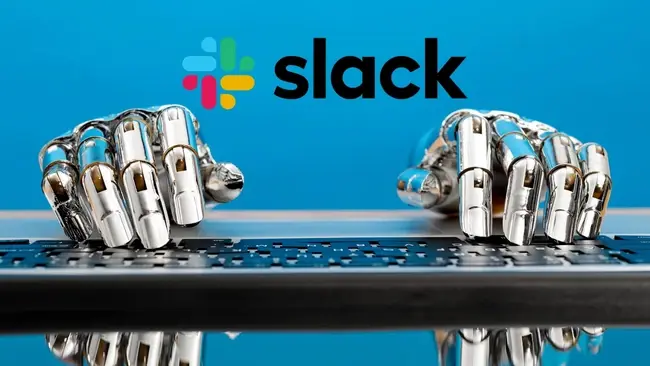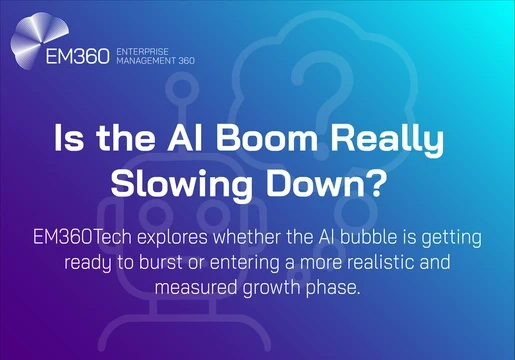The Salesforce-owned Slack has announced a new AI-enabled app that will allow users to use ChatGPT to instantly generate replies to colleagues and summarise meetings.
The generative AI sensation will be integrated into the inter-office communication platform, Salesforce said, allowing users to automatically draft replies instead of manually entering the response themselves.
Salesforce is calling the offering Einstein GPT, drawing on OpenAI’s technology that has taken the tech industry by storm since the startup opened and launched ChatGPT in November last year.
It said the AI-wired app will allow users to find answers on any project or topic, create conversation summaries, and draft messages in seconds.
“The ChatGPT app for Slack deeply integrates the power of OpenAI’s cutting-edge large language models into Slack’s conversational interface, Noah Desai Weiss, Chief Product Officer at Slack said.
“This will give customers new superpowers by helping them tap the collective knowledge of their organization’s channel archive, Weiss added.
Salesforce CEO Marc Benioff joined in on the excitement. “In combination with our Data Cloud and deeply integrated with Customer 360, including Tableau, MuleSoft and Slack, Einstein GPT will open the door to the next level of intelligence and drive digital transformations in our new AI world,” Benioff said in a statement about the new tool
The news arrives as part of Salesforce’s broader announcement of Einstein GPT, the firm’s take on OpenAI’s ChatGPT model for CRM (customer relationship management) software systems.
According to Salesforce, Einstein GPT infuses both Salesforce’s and OpenAI’s AI technology, allowing it to craft emails salespeople can send to customers, generate responses to customer questions, and create “targeted content” for marketers.

The AI Fixation
Salesforce joins the host of other large tech companies across Silicon Valley already capitalising on OpenAI’s viral generative AI chatbot.
Days before Salesforce’s announcement, Microsft revealed a ChatGPT-power CoPilot for Microsoft 365 able to write customisable emails or messages to customers as well as generate content like Salesforce’s Einstein GPT.
The Silicon Valley behemoth reportedly invested $10 billion into the project with plans to integrate the tool into a variety of services, including its search engine, Bing.
To read more about generative AI, visit our AI in the Enterprise Page.
Its biggest search competitor, Google, also recently issued an internal “code red” in response to the AI-wired tool, concerned that it may transform the search market.
In an earnings call shared on YouTube, CEO Sundar Pichai said Google was planning to “unlock the incredible opportunities AI enables,” believing the technology has reached an “inflection point.”
He also expressed his belief that Google’s previous AI research and development helped bring about “the generative AI applications you’re starting to see today.”
Google historically moved hesitantly with AI developments prior to the sudden explosion of ChatGPT due to the risks associated with its implementation.
Are we ready for AI-wired Office Assistants?
Despite generative AI’s promise for the future of online search, Microsoft’s approach to implementing the chatbot will be key in determining its success in the early stages of Bing’s transformation.
OpenAI’s CEO, Sam Altman has reiterated that the technology remains “an early demo of what’s possible,” warning companies that “it’s a mistake to be relying on [ChatGPT] for anything important right now.”
The problem with generative AI software like ChatGPT – which is why tech firms like Google have remained previously cautious – is the technology's reliance on data-led decision-making.
OpenAI has warned that ChatGPT "may occasionally generate incorrect or misleading information” due to it constructing its conclusions from online databases that together lack context and social coherence.
AI has been & will be Corrupted by it's interactions with the public. Humans as we are all finding out, can be extremely Evil. And now AI can be Racist & Evil too.
— The White Rabbit (@AllBiteNoBark88) March 6, 2023
This does not bode well for digital identity security when it has already been rolled out.https://t.co/hjiUfy2N8p
Many users online have shared their negative experiences when using ChatGPT’s chatbot, reporting racial and gender biases and the tendency to produce false information as fact.
These limitations will limit Salesforce's adoption of the technology going forward, and users will likely need to edit AI-drafted messages to ensure conversations remain safe for work for the time being.







Comments ( 0 )